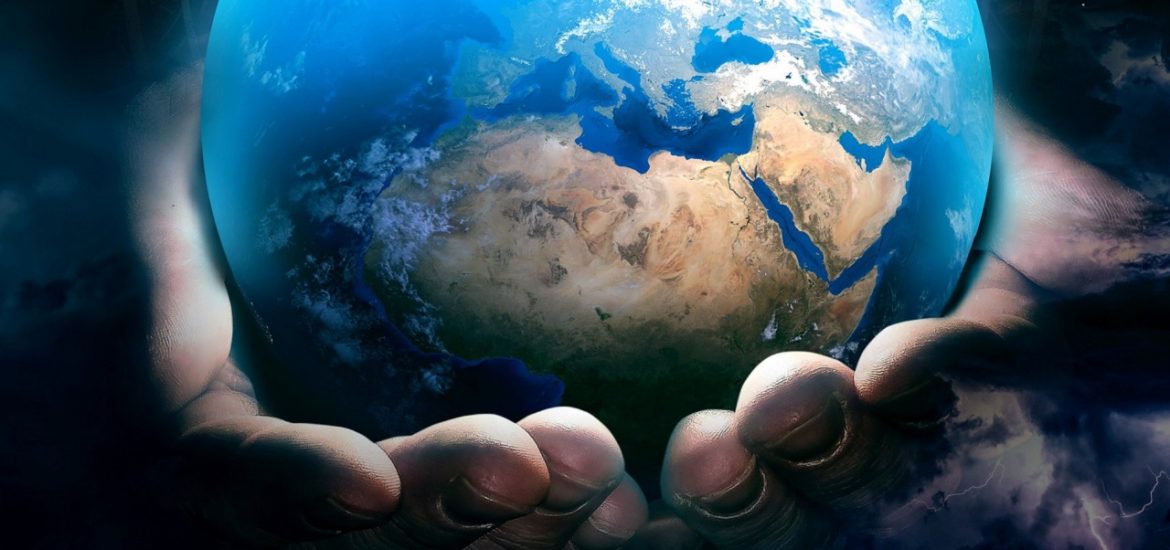Today is Earth Day, a perfect opportunity to rethink our conventional paradigms that are dooming the planet’s livability for human beings. Today I would like to explore briefly several ideas alluded to in yesterday’s post. The first is Dr. María Elvira Ríos’ exploration of ganying, Dependent Origination in Óscar Carrera’s writing, and Jordi Solé Ollé’s exploration of interdependence.
In Una interpretación ecosófica de la experiencia budista de ganying, Dr. Ríos looks at an ancient Chinese idea that appeared in the Chinese Yijing. She interprets it as a form of stimulus-response or empathic resonance that precedes rational deliberation or conceptualization. She notes how scholar Robert Sharf explains that ganying was used to explain celestial omens, moral retribution, ritual efficacy, natural and astronomical cycles, and political upheavals. She further notes: “This interpretive diversity of the ganying experience allows us to listen to or read multiple stories classified as ganying. This can be stimulated by having dreams and visions of a deity, asking for the healing of an illness, or an encounter with a Buddha or a bodhisattva. The presence of the Buddha or bodhisattva is a response to the prayer of the person who suffers, and directs the supplicant’s feelings to receive a compassionate response that allows them to get out of suffering, often interpreted as the karma of past lives.”
She further explains: “What I ask myself and also invite you to investigate, practice, and experience is whether there is a manifestation on the part of the deity when nature participates in a Buddhist experience of ganying. Or, perhaps, we are facing an experience of spontaneous union with nature, which is achieved by experiencing a situation in which something of nature manifests itself—such as the presence of clouds, fog, heavy rain, the sound of the river, the immensity of a forest, the birdsong or the cry of a monkey—and activates the sincere intention of the recitation of mantras, the performance of rites, all in tune with the sound, breathing and action of the natural space. From there, from that being, the conditions are presented so that the sound of the mantra or the name of a Buddha or a bodhisattva resonates with the natural sound and a beneficial response is achieved.”
Óscar Carrera’s examination of karma and Dependent Origination in Paṭiccasamuppāda: de grillete kármico a interconexión ecológica urges that we need a new interpretation of Dependent Origination. “We should understand dependent arising as a doctrine of total interconnectedness often involves significant changes from earlier notions. Instead of renunciation of the world, a celebration of its harmony; rather than detaching from things, a desire for unity and fusion; instead of radical impersonality, an expanding self to encompass all. Instead of a karmic chain that must be stopped, we should see it as the network as mother, and a matrix in which to fit. Instead of breaking with everything, embrace everything.”
Jordi Solé Ollé’s Karma e interdependencia: una aproximación desde los sistemas complejos invokes Indra’s Net in explaining how Buddhism understands complex environmental systems, and how such an interpretation could lead us to a deeper understanding of nature’s workings and needs. He notes: “Negative disturbances spread like a wave throughout a network, growing and expanding. But this same principle applies to actions that are in harmony with the pure structure of the network of interconnections. Moreover, these actions have a greater scope, because the perspective under which they are carried out is much broader. Thus, our internal improvement is much more powerful than the negative effects of pollution and stains on each jewel in the network, since each small stain that disappears allows the light of infinity of jewels to be reflected in the network.
Feedback loops figure prominently in Ollé’s reflection on interdependent links. “The feedback pattern that we have discussed generates a positive multiplicative effect not only in us, but in the beings with whom we relate, at some point also changing their perceptions and, therefore, also bringing them closer to the ideal network of Indra. So we see that complex systems theory gives us a perspective that can help us in the classical images and examples of the sutras on karma and interdependence. The science of complexity and its methodologies, designed to understand nature or human creations like the Internet, transport networks, social behavior, and so on, can also be used to interpret some of the Buddhist concepts that explain how nature works.”
Throughout the works of these three writers and scholars, a strong theme of reciprocal care and reflective “attending to” can be discerned. Our world has grown careless, callous, and dismissive of the essential universal desire: to feel cared for and valued. This care, ganying, needs to be extended by not just individuals, but institutions of power like corporations and governments, to Earth as an totality. Everyone is responsible, but stakeholders with real influence and power must be held to a high standard of stewardship.
Whether one calls it the biosphere or Gaia, Earth Day invites us to consider the planet’s long-term future as this living totality. As Glasgow proved, we have already missed many targets to pull ourselves back from the brink in terms of catastrophic climate change. There is no reason not to keep trying, however. Even as Earth Day looks bleaker with each passing year, there are stories of success and transformation that should hearten us. Humanity only has so many chances. They should not be squandered.


